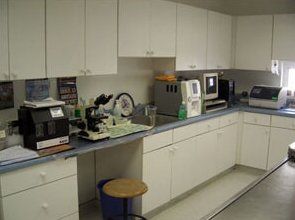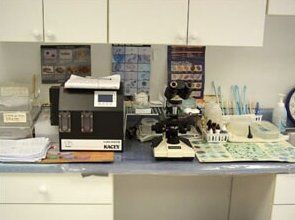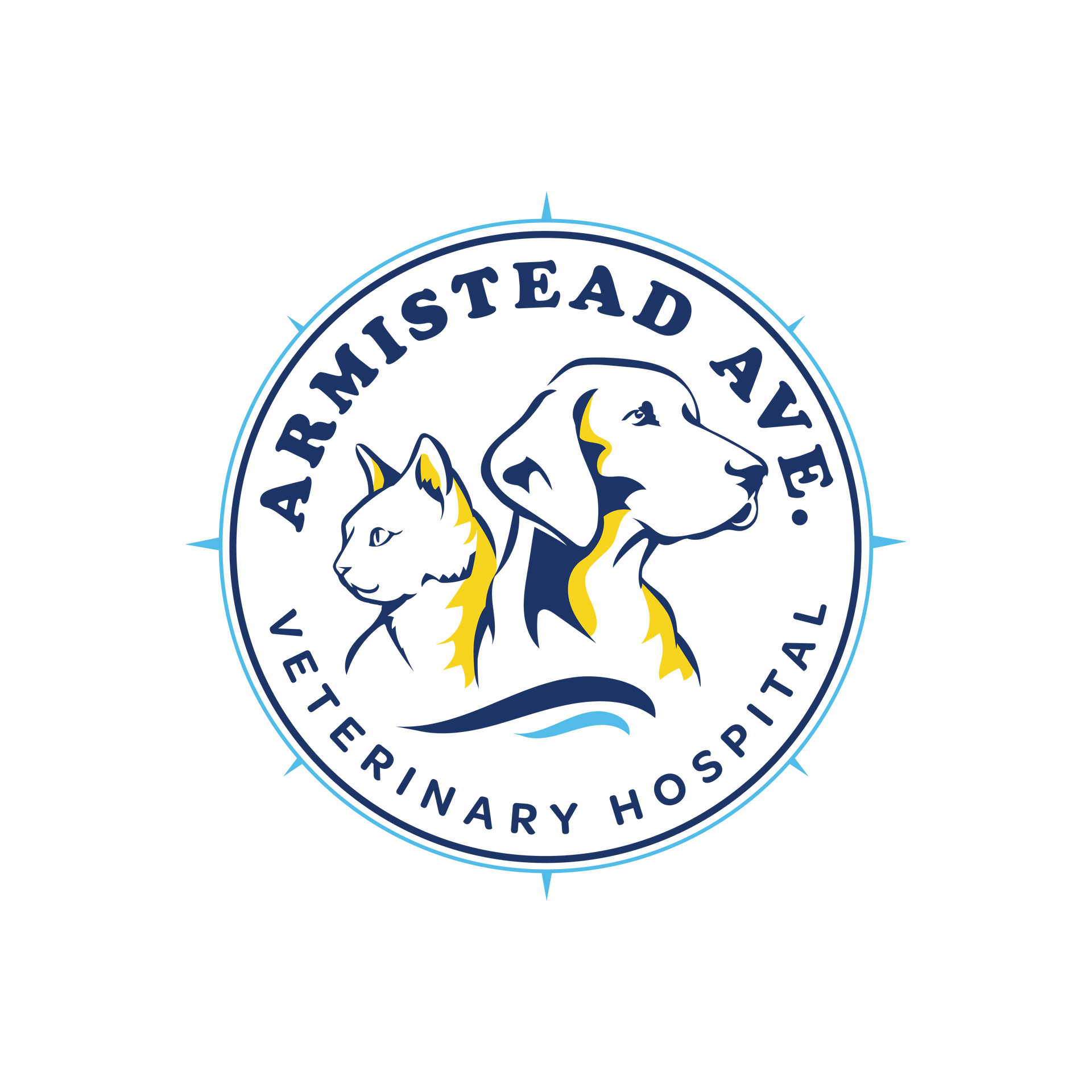In-House Veterinary Laboratory In Hampton, VA
Our in-house lab is a fundamental component of our operation. Tests on blood, urine, stool, or tissue are often critical for determining either illness or health. Armistead Avenue Veterinary Hospital's comprehensive, in-house lab allows us to make faster diagnosis because we can get results quickly rather than sending samples to another lab then waiting for processing and reports. Our on-site laboratory translates into prompt treatment.
Pre-surgical blood analysis provides an extra measure of safety. We use laboratory tests to check organ function and determine the best way to prepare each animal for surgery.
Labwork routinely performed on premises includes:
Blood Chemistry
- Albumin (ALB) – A protein that is produced by the liver. Reduced levels of this protein can point to chronic liver, kidney, or intestinal disease.
- Alkaline Phosphatase (ALKP) – An enzyme present in multiple tissues, including liver and bone. Elevated levels can indicate liver disease, Cushing's syndrome or steroid therapy.
- Amylase (AMYL) & Lipase – Enzymes produced by the pancreas. The pancreas secretes amylase to aid in digestion. Elevated blood levels can indicate pancreatic disease.
- Alanine Aminotransferase (ALT) – An enzyme that becomes elevated with liver disease or injury.
- Blood Glucose (GLU) – High levels can indicate diabetes. In cats, high levels also indicate stress, which can merely be a result of the trip to the veterinary hospital. Low levels can indicate liver disease, infection or certain tumors.
- Blood Urea Nitrogen (BUN) – BUN is produced by the liver and excreted by the kidneys. Abnormally high levels can indicate kidney disease or dehydration, and low levels can be associated with liver disease.
- Cholesterol (CHOl) – Elevated levels of cholesterol are seen in a variety of disorders,including hypothyroidism, liver or kidney disease.
- Creatinine (CREA) – Creatinine is a by-product of muscle metabolism and is excreted by the kidneys. Elevated levels can indicate kidney disease, urinary tract obstruction or dehydration.
- Calcium (Ca2+) – Increased levels can be seen with diseases of the parathyroid gland and kidneys, or as an indicator of certain types of tumors.
- Phosphorus (PHOS) – Elevated phosphorus can be an indicator of kidney disease.
- Total Bilirubin (TBIL) – Bilirubin is a breakdown product of hemoglobin as well as a component of bile. Blood bibirubin levels are useful in indicating liver disease and possibly help characterize anemia.
- Total Protein (TP) – The level of TP can detect a variety of conditions, includingdehydration and diseases of the liver, kidney or intestine.
Hematology
- Hematocrit (Hct) – Provides information on the amount of red blood cells (RBCs) present in the blood. A low hematocrit indicates anemia (low red blood cells or hemoglobin).
- Complete Blood Count (CBC) – A more complete panel of tests, a CBC provides detailed information on red blood cell counts, white blood cell counts and platelets. The total white blood cell counts and individual cell counts can indicate leukemia, stress, inflammation or an inability to fight infection. Low platelet numbers can indicate a bleeding problem. We might advise that surgery be delayed if anemia, inflammation or especially a low platelet count is present because these conditions could cause serious surgical complications.
- Morphologic Inspection (Blood smear) – Looking at the cells through a microscope can provide information on the type of anemia or inflammation, or other abnormalities, such as leukemia.
Antigen Test
Checks for the presence of heartworms, e. canis, lyme disease and anaplasmosis in your pet.
Electrolytes
Sodium, Potassium, Chloride (Na+, K+, Cl) – The balance of these electrolytes is vital to your pet's health. Abnormal levels can be life-threatening. Electrolyte tests are important in evaluating vomiting, diarrhea, dehydration and cardiac (heart) symptoms.
Urinalysis
The urine contains by-products from many organs, such as the kidneys, liver and pancreas. Abnormal levels of these by-products can indicate diabetes, liver or urinary tract disease.
Coagulation Analyzer
Evaluates the diseased blood for clotting disorders.
Medical Binocular Microscopes
Allow for microscopic study of fluid sediment, fecal specimens and tissue samples.
Armistead Avenue Veterinary Hospital doctors and staff are dedicated to providing accurate and prompt results with personalized service for the health and welfare of your best friend. Call us today to keep your animal healthy and happy.









